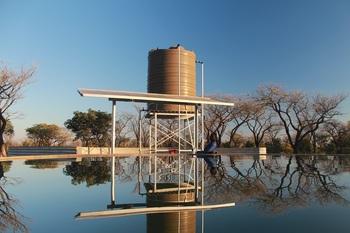Context
During German colonial rule, most of the farmland in southern and central Namibia was allocated to white farmers. In 1991, thanks to a land reform programme, approximately 9 million hectares of agricultural land was redistributed, and white ownership fell from 98 per cent to 71 per cent.
The principle of commercial land reform is built on three pillars: the National Resettlement Programme (NRP), the Group Resettlement Schemes (GRS) and the Affirmative Action Loan Scheme (AALS). By 2020, a total of 5 million hectares is to be redistributed under NRP, and 10 million hectares under AALS.
Under the communal land reform, traditional land use rights have been registered and official certificates issued, primarily in the north of the country. In addition, very sparsely populated or uninhabited grazing land in communal areas is also being designated by the government for commercial agricultural use. The aim of the complex land reform measures is to ensure effective and sustainable use of resources, better quality of life for the beneficiaries and higher income levels for farms. With this in mind, supplementary agricultural support programmes have been initiated under which the land reform beneficiaries receive support prior to and after settlement.
Objective
Beneficiaries of the land reform programme use the resources that have been secured or allocated in a sustainable and cost-effective manner. Natural resource management is more sustainable, and access to resources more equitable.

